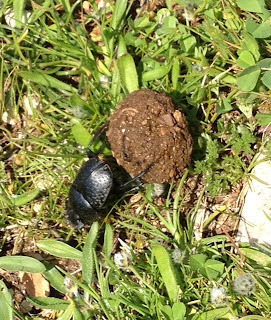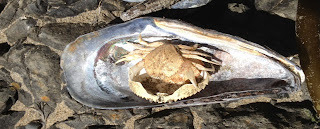Astro-ethics
∞
C.S. Lewis On Astro-Ethics
The field of ethics in astrobiology and space exploration is small but growing. Does anyone own the rights to the moon? Who may profit from resources found on asteroids, or on other planets? What obligations, if any, do we have to other species we may one day encounter?
C.S. Lewis was well ahead of his time in considering these questions. As Matthew Dickerson and I have discussed at some length, Lewis's novel Out Of The Silent Planet takes up questions like these. Lewis worried that our stories and myths about space exploration made aliens into monsters and made us into conquering heroes, when the facts could really be quite the reverse. He was not sanguine about the likelihood that we would treat other species ethically:
His prescription must have seemed wildly impractical, namely that we begin preparing ourselves to encounter other sentient species by teaching ourselves that they may be every bit as worthy of life and God's love as we. One need not believe in God to see the significance of such a decision, since it amounts to deciding that other species have claims to rights that are every bit as strong as our own. Here is Lewis again:
Astro-ethics isn't the same as astropolitics, though Lewis's prediction is that if we ever find another sentient species, the two studies would come together quickly. If this all seems impractical and irrelevant - as even astrobiology does to some people - let me insist that this is not idle ivory-tower speculation. Astrobiology and exobiology help us to understand our own home better by forcing us to rethink the boundaries of life, which helps us to look for life in places we previously thought there could be no life, like deep-sea vents, deep underground, and under Antarctic ice. Out of the Silent Planet was the first of a trilogy; the third book brought the ethical issues home again. Thinking through a fantasy of meeting alien species can provide a proxy for meeting others here on earth, and for beginning to recognize the importance of treating the other inhabitants of this terrestrial ball ethically.
*(“Religion and Rocketry,” available here)
**(“Shall We Lose God In Outer Space?” Great Britain: SPCK, 1959. 10) Emphasis added.
C.S. Lewis was well ahead of his time in considering these questions. As Matthew Dickerson and I have discussed at some length, Lewis's novel Out Of The Silent Planet takes up questions like these. Lewis worried that our stories and myths about space exploration made aliens into monsters and made us into conquering heroes, when the facts could really be quite the reverse. He was not sanguine about the likelihood that we would treat other species ethically:
“We know what our race does to strangers. Man destroys or enslaves every species he can.Civilized man murders, enslaves, cheats, and corrupts savage man. Even inanimate nature he turns into dust-bowls and slag-heaps….I therefore fear the practical, not the theoretical, problems which will arise if ever we meet rational creatures which are not human.”*
 |
| We often make ethical decisions based on appearances, but resemblance to us shouldn't be the basis for considering other species to be rational agents or patients. |
His prescription must have seemed wildly impractical, namely that we begin preparing ourselves to encounter other sentient species by teaching ourselves that they may be every bit as worthy of life and God's love as we. One need not believe in God to see the significance of such a decision, since it amounts to deciding that other species have claims to rights that are every bit as strong as our own. Here is Lewis again:
"What I do know is that here and now, as our only possible practical preparation for such a meeting you and I should resolve to stand firm against all exploitation and all theological imperialism. It will not be fun. We shall be called traitors to our own species. We shall be hated of almost all men; even of some religious men. And we must not give back one single inch. We shall probably fail, but let us go down fighting for the right side. Our loyalty is due not to our species but to God. Those who are, or can become, his sons, are our real brothers even if they have shells or tusks. It is spiritual, not biological, kinship that counts.” **
 |
| "Even if they have shells or tusks" |
*****
*(“Religion and Rocketry,” available here)
**(“Shall We Lose God In Outer Space?” Great Britain: SPCK, 1959. 10) Emphasis added.